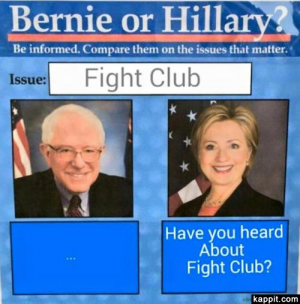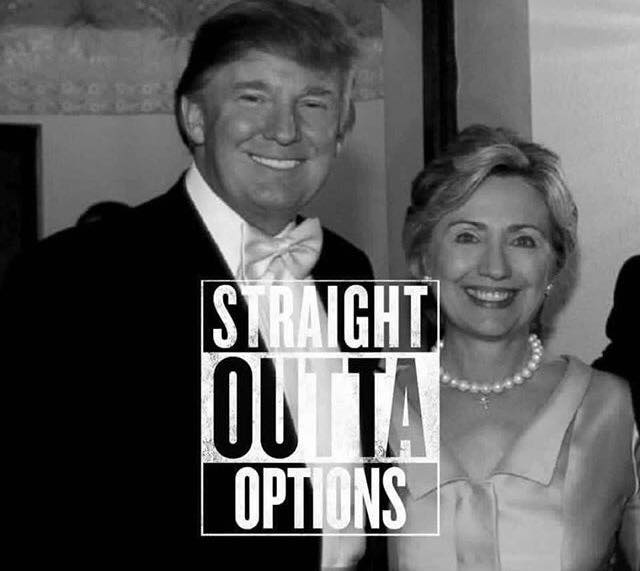Election Memery: What Do You Meme?
October 30, 2016
Feel as you may about the current election cycle, there is one single, undeniable, irrefutable fact about American politics: never before has there been such a prominent use of memes. Memes, humorous, captioned pictures or sayings, have been circulating the political scene at an unprecedented rate. They come in many varieties, and unlike many of our nation’s concerns, truly have bipartisan support.
These election memes tend to focus on the most ridiculous aspects of the candidates, whether they be conspiracies and scandals surrounding them or actual policy proposals. From Trump’s hair to Hillary’s emails to Trump’s wall to “information leading to Hillary’s arrest,” the memes go back and forth, leaving both candidates at the end of much mockery.
In a certain sense, memes are the political cartoons of the 21st Century. While political cartoons still frequently circulate the media, they are often viewed by the older generations or by those very passionate and serious in their political beliefs. For younger generations, memes are a new medium for political humor and mockery. There is little need for deep political knowledge to enjoy them, as many of these memes have the same kind of light humor as shows such as Saturday Night Live. They tend to avoid the more divisive, partisan issues often criticized in political cartoons, instead joking about each candidate’s personality, often in nonpolitical ways. These tend to become popular, as they avoid the polarizing issues of the election; rather, they poke fun at the quirks and personas of each candidate, which have become increasingly a part of the electoral process.
 Also, with voter satisfaction at its lowest levels in decades, some memes attempt to unite voters in mutual distaste for the candidates. However, it would be false to say that the candidates themselves do not utilize the power of memery. Trump, for example, has created memes out of all of his opponents with his signature adjective-name combo. There’s “Crooked Hillary,” “Boring Jeb,” “Little Marco,” “Lyin’ Ted,” and on and on. Hillary’s campaign, on the other hand, has recently gathered support and much controversy by declaring the Pepe the Frog meme a symbol of white supremacy following the Anti Defamation League labelling it a symbol of hate speech. With this move, it appears that memes themselves are no longer just a medium for mocking the political scene, but are also within political debate. Memes themselves being subject to political controversy seems inevitable at this point, given the immense divide and polarization of this election.
Also, with voter satisfaction at its lowest levels in decades, some memes attempt to unite voters in mutual distaste for the candidates. However, it would be false to say that the candidates themselves do not utilize the power of memery. Trump, for example, has created memes out of all of his opponents with his signature adjective-name combo. There’s “Crooked Hillary,” “Boring Jeb,” “Little Marco,” “Lyin’ Ted,” and on and on. Hillary’s campaign, on the other hand, has recently gathered support and much controversy by declaring the Pepe the Frog meme a symbol of white supremacy following the Anti Defamation League labelling it a symbol of hate speech. With this move, it appears that memes themselves are no longer just a medium for mocking the political scene, but are also within political debate. Memes themselves being subject to political controversy seems inevitable at this point, given the immense divide and polarization of this election.
Yet there remains hope that, through memes, we may come together as a nation to mock the candidates one of which who will inevitably be our Commander-in-Chief, Head of State, and Leader of the Free World. Despite our differences in political opinions, what unites our country is our good, light-hearted sense of humor.






























